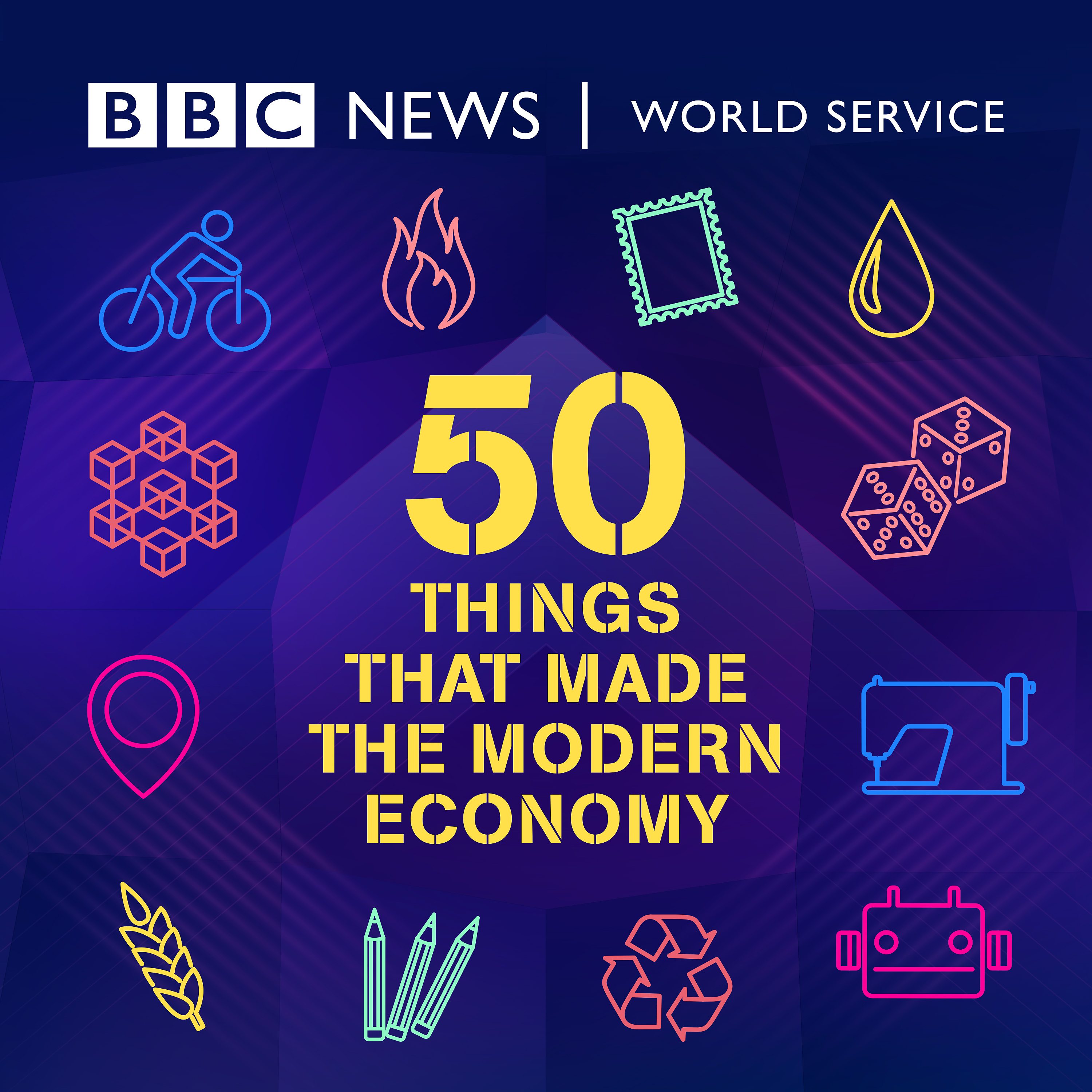

50 Things That Made the Modern Economy
BBC World Service
Tim Harford tells the fascinating stories of inventions, ideas and innovations which have helped create the economic world.
Episodes
Mentioned books

Apr 8, 2019 • 9min
Gyroscope
When the HMS Victory sank in 1744, with it went an inventor named John Serson and a device he’d dreamed up. He called it the “whirling speculum”, but we now know the basic idea as a gyroscope. Serson thought it could help sailors to navigate when they couldn’t see the horizon. Nowadays gyroscopes are tiny and, as Tim Harford describes, they are used to guide everything from submarines to satellites, from rovers on Mars to the phone in your pocket. They are also integral to drones – a technology that some believe could transform how we do our shopping. But for that, they’ll need to work in all weathers.Image: A gyroscope (Credit: Getty Images)

Apr 8, 2019 • 15min
Bonus 3: Mosquito and surgical needle
Episode 3 of our new podcast: the story of the blood-sucking pest and a pain-free surgical needle. Scientists have been studying the mosquito’s mouthparts. Could the dreaded ‘prick’ of a needle soon be a thing of the past? With Patrick Aryee.
Find it here: www.bbcworldservice.com/30animals
#30Animals

Apr 1, 2019 • 9min
Cellophane
Plastic food packaging often seems obviously wasteful. But when Jacques Brandenberger invented cellophane, consumers loved it. It helped supermarkets go self-service, and it was so popular Cole Porter put it in a song lyric. Nowadays, people worry that plastic doesn’t get recycled enough but there are two sides to this story. Plastic packaging can protect food from being damaged in transit, and help it stay fresh for longer. Should we care more about plastic waste or food waste? As Tim Harford explains, it isn’t obvious and the issue is complicated enough that our choices at the checkout may accidentally do more harm than good.Producer: Ben Crighton
Editor: Richard Vadon(Image: Noodles and cellophane, Credit: Getty Images)

Apr 1, 2019 • 13min
Bonus 2: Octopus and camouflage
Episode 2 of our new podcast, 30 Animals That Made Us Smarter. This one is about the eight-limbed master of disguise and surveillance technology. The colour and texture-changing abilities of the octopus are helping researchers with developments in camouflage. Can we make robots do the same thing? With Patrick Aryee. www.bbcworldservice.com/30animals
#30Animals

Mar 25, 2019 • 11min
Langstroth Hive
Humans have valued bees for their honey for thousands of years – and economists have long admired bees for their cooperative work ethic, too. But few of us, whether economists, honey-lovers, or both, have quite appreciated just how much the honey bee has been industrialised – and the simple yet radical invention that made that industrialisation possible. As Tim Harford explains, it is a sign of just how far the modern market economy has penetrated that it now reaches deep into the heart of the beehive.Producer: Ben Crighton
Editor: Richard Vadon(Image: Bee keeper lifting shelf out of hive, Credit: MIlan Jovic/Getty Images)

Mar 25, 2019 • 15min
Bonus: 30 Animals That Made Us Smarter
Introducing our new podcast about innovation, technology and the animal kingdom. This is the whole of the first episode about how the kingfisher inspired the design of a train. The 500 series Shinkansen, also known as bullet train, is one of the fastest in the world. It is also quiet, but that was not always the case. This is the tale of Japanese engineer Eiji Nakatsu, the kingfisher, an owl, a penguin and biomimicry. www.bbcworldservice.com/30animals

Mar 17, 2019 • 1min
Coming soon: Season two
Fifty more things are on their way! Including the pencil, blockchain, bicycle, credit ratings and gambling.
Tim Harford will return with season two on 25 March 2019.
#50Things

Jan 17, 2019 • 10min
Index Fund
Warren Buffett is the world’s most successful investor. In a letter he wrote to his wife, advising her how to invest after he dies, he offers some clear advice: put almost everything into “a very low-cost S&P 500 index fund”. Index funds passively track the market as a whole by buying a little of everything, rather than trying to beat the market with clever stock picks – the kind of clever stock picks that Warren Buffett himself has been making for more than half a century. Index funds now seem completely natural. But as recently as 1976 they didn’t exist. And, as Tim Harford explains, they have become very important indeed – and not only to Mrs Buffett.Editors: Richard Knight and Richard Vadon
Producer: Ben Crighton(Image: Market graphs, Credit: Shutterstock)

Dec 17, 2018 • 10min
Special Bonus: Santa Claus
Why does Father Christmas wear red and white? It is not for the reason you may think. The story of Christmas and consumerism, with Tim Harford. And we’ll be back with season two of 50 Things in March 2019.Producer: Ben Crighton

Oct 28, 2017 • 10min
Number 51
Revealed – the winning 51st Thing! What won the vote to be added to our list of 50? We asked for ideas for an extra “thing” that made the modern economy. We received hundreds of suggestions. Thousands of votes were cast on our shortlist of six. Now we have a winner. Discover what it is and why it is worthy of being Number 51.Presenter: Tim Harford
Producer: Ben Crighton
Editors: Richard Knight and Richard Vadon


